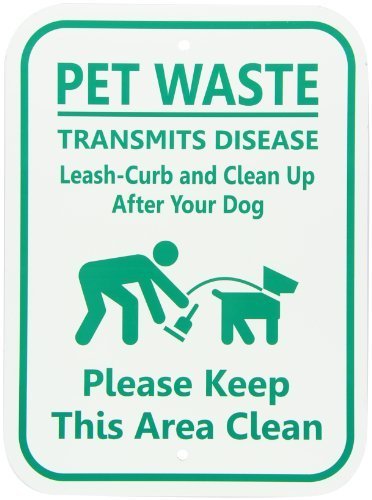Pet Waste Removal and Dog Feces
While it seems normal to let your pet use your lawn as their restroom. The threat from dog waste is very serious and dog feces, you should remove it from your lawn promptly. If you don’t have time consider hiring a pet waste removal company. Dog feces primarily destroys the health and life of your lawn. It acts as a melting pot of bacteria, parasites, and diseases. Pet Waste can endanger humans and animals, and finally the risk imposed upon the environment.
Horrible for Your Lawn, Kids, and the Environment
Despite public opinion, not all poop is fertilizer and dog poop is particularly bad for your lawn. Dogs have a high protein diet that creates a very acid excrement of waste products. Round patches of dead grass can indicate where your pet likes to go. Cleaning up the dog poop quickly is the best way to prevent yellowing caused by dog poop. You can also flush any pee spots with water to dilute acidity and help with browning. The easiest way to pick up your pet waste is with a poop scooper.
Dog fecal matter poses a serious threat to our lawns. Pet waste poses a greater risk to anyone who comes in contact with the lawns, especially pets, and children. Parasites can pass from the dog waste to children, other pets, and even themselves. A few ways a dog or cat may receive various parasites, viruses, and bacteria from their own poop ranges from rolling in it to simply pawing at it. Contact with dog feces or direct contact with the dog feces can lead to human ingestion and infection; this is most common in children. Some ailments that can affect humans are parvo virus, whipworm, hookworm, roundworm, and coccidian. One gram of dog waste can contain 23 million fecal coliform bacteria; dog poop can also spread giardia and salmonella well.
Water Contaminating
Pet feces can be disastrous to the local water table, contaminating nearby ponds, lakes, rivers, and even drinking water. In fact, according to the EPA dog poop is the third cause of water pollution. When feces remain on the ground for long periods, rain and even sprinklers will begin to dilute the waste. Then it breaks apart the feces and slowly spread the bacteria on other contaminates into local water sources. If your yard happens to hold water for extended periods of time, the problem may be amplified. The EPA recommends curbing potential water seepage and infection. You should remove dog feces from the yard every 1-7 days, depending on the size of the dog and number of dogs in the household.
As we have made you aware if you didn’t already know, pet poop is steadily damaging our lawns, pets, and people that live with us. Because of the high acidity and even nitrogen levels in your dog’s poop, your grass is turning steadily brown. The left-over dog poop contains millions of bacteria, viruses, and parasites. These diseases are waiting for you, your pets and kids. Remember to always clean up after your pet before its poop become our pollution.

